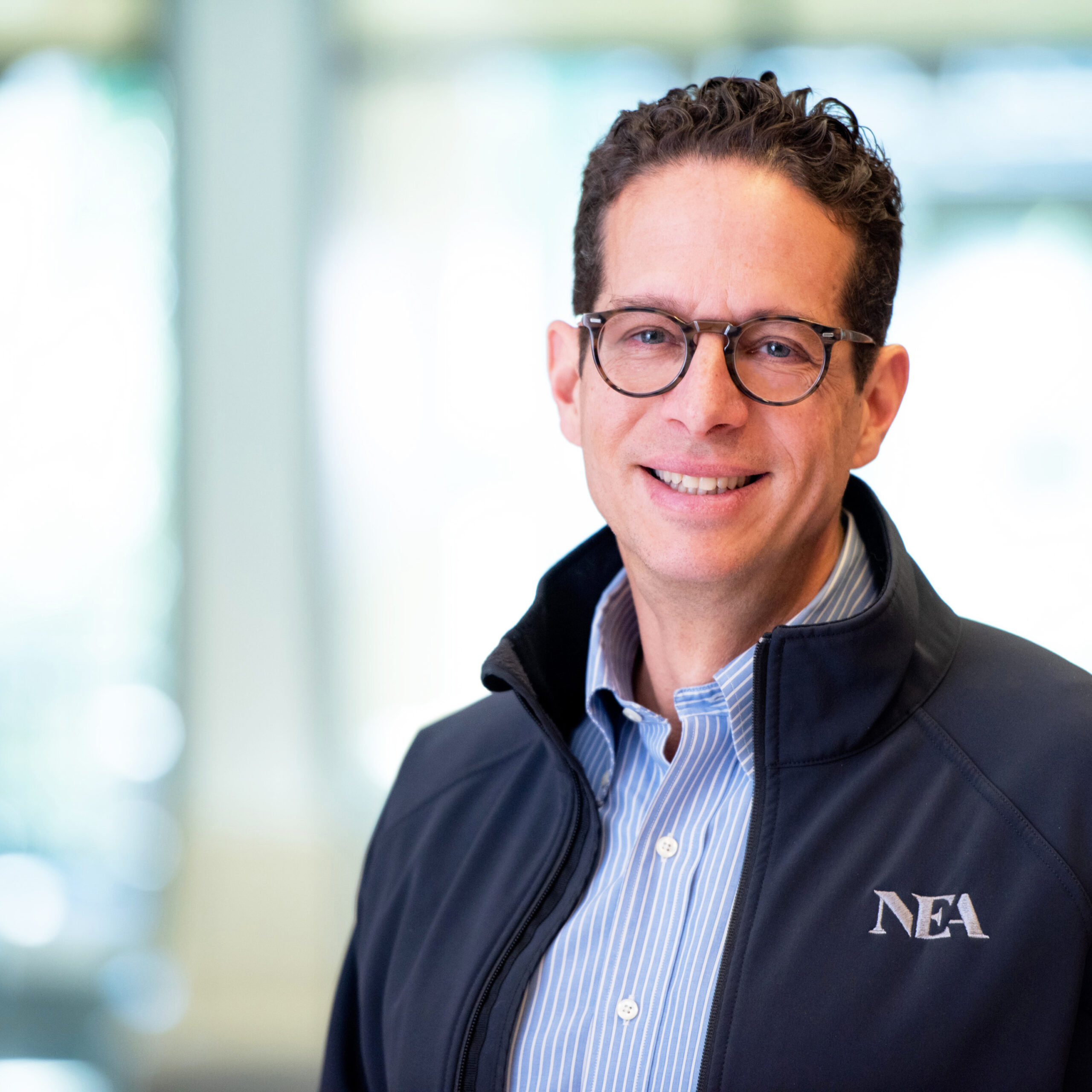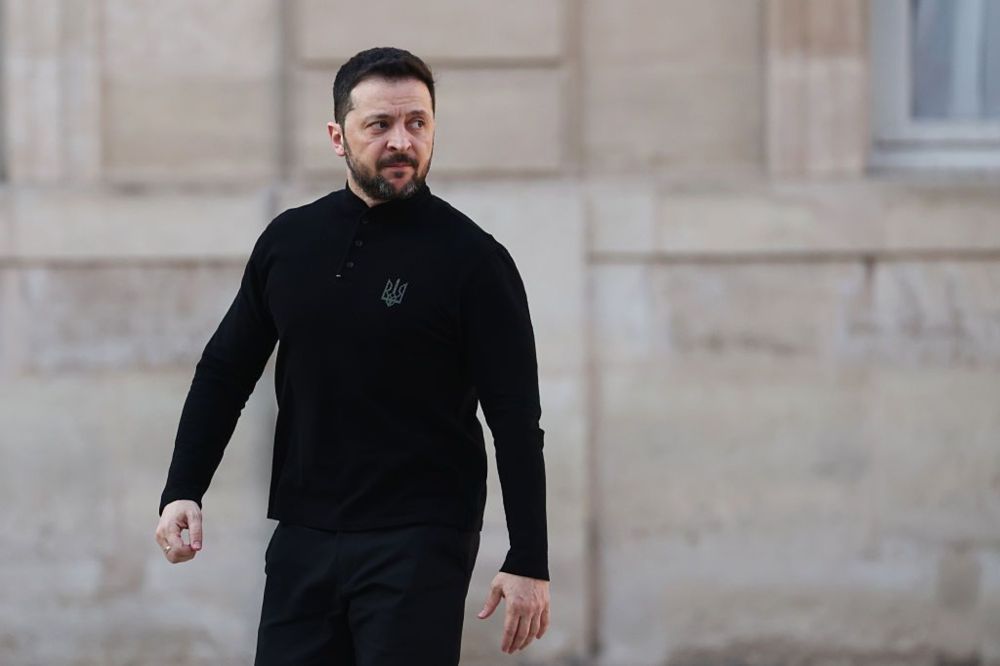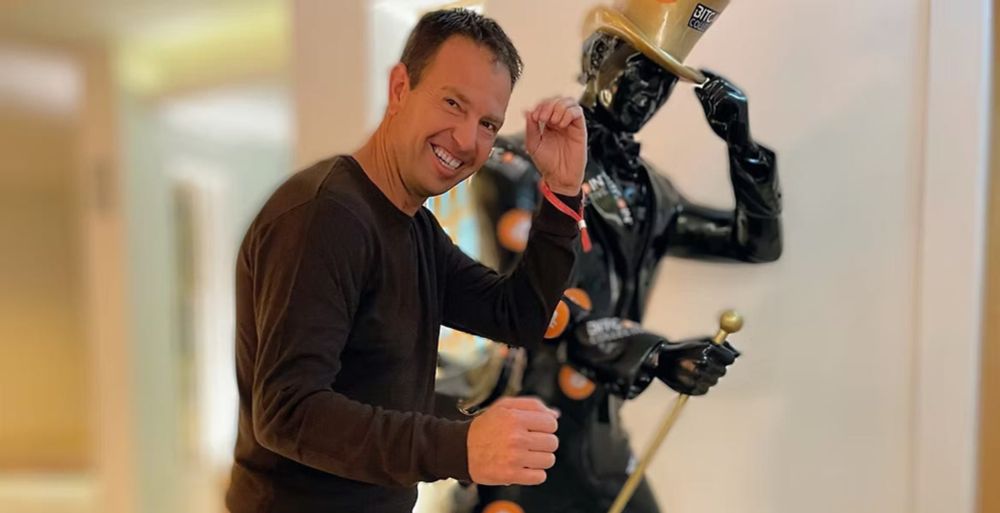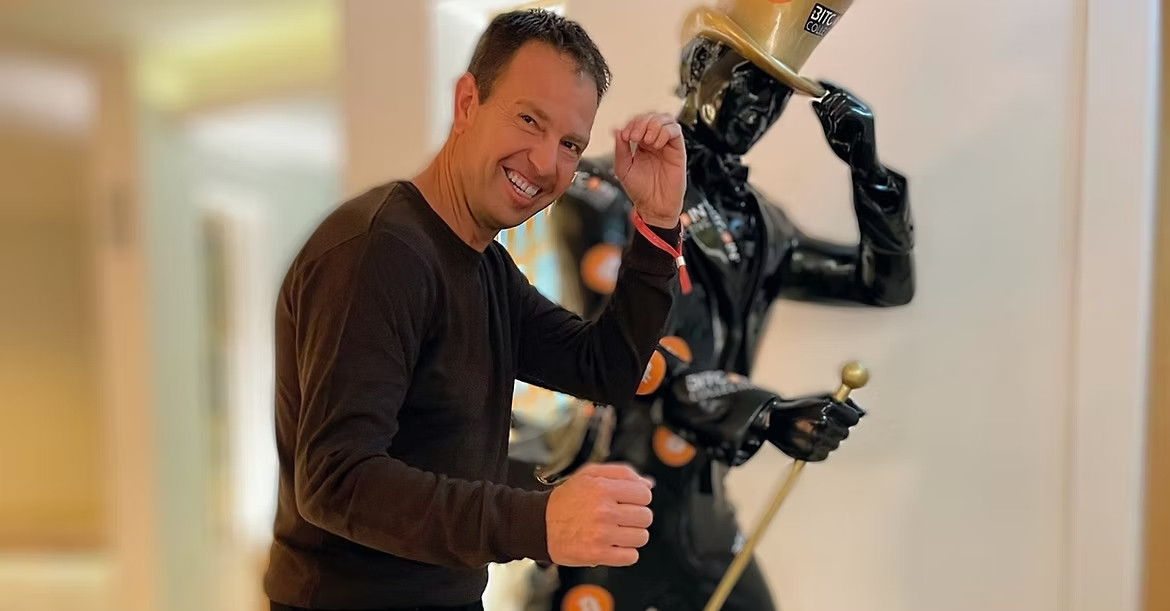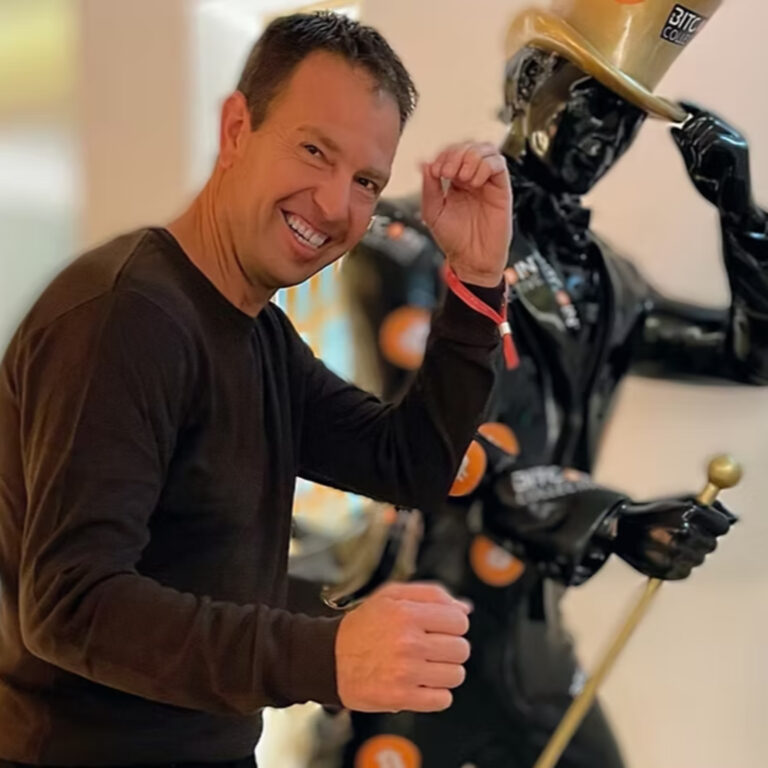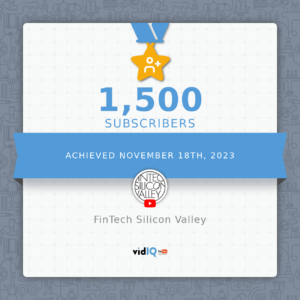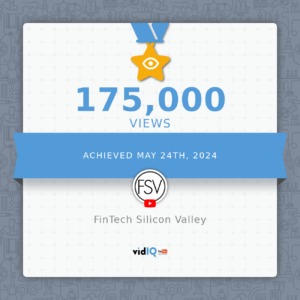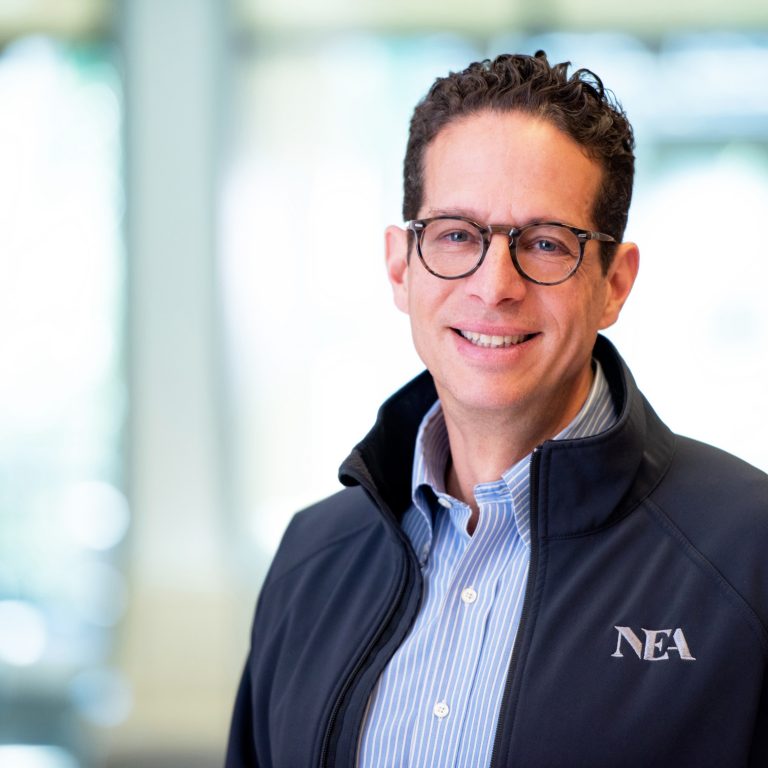
Ben Narasin is a prolific entrepreneur and early-stage investor with three decades of company-building expertise. His portfolio comprises of key early successes in fintech, digital marketplaces, mobile and connected devices. His seed investments include Dropcam, Lending Club, TellApart, Kabbage and Zenefits. Before NEA, Narasin most recently served as a General Partner at Canvas Ventures, and was previously with TriplePoint Capital, where he oversaw the firm’s seed funding investment activities. He founded several consumer companies before launching his investing career, including Fashionmall.com which led to a successful IPO. He holds a B.A. in Entrepreneurial Studies from Babson College.
Ben Narasin is a prolific entrepreneur and early-stage investor with three decades of company-building expertise. His portfolio comprises of key early successes in fintech, digital marketplaces, mobile and connected devices. His seed investments include Dropcam, Lending Club, TellApart, Kabbage and Zenefits. Before NEA, Narasin most recently served as a General Partner at Canvas Ventures, and was previously with TriplePoint Capital, where he oversaw the firm’s seed funding investment activities. He founded several consumer companies before launching his investing career, including Fashionmall.com which led to a successful IPO. He holds a B.A. in Entrepreneurial Studies from Babson College.
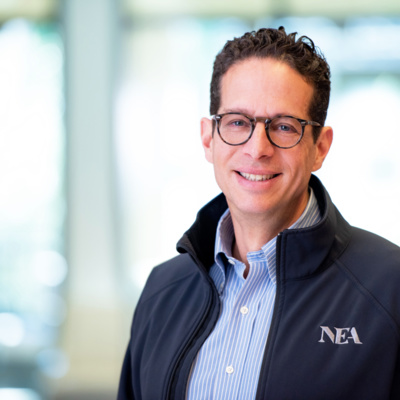
Transcription
PEMO: Welcome Ben. So good to speak to you again, how’s it going in the crisis time,
BEN: Because as good as can be expected, staying busy.
PEMO: Right. And so can you tell me again what your main focus is for investments with NEA?
BEN: Sure. So maybe just a brief intro for those that don’t know me already. I’m Ben Harrison. I was an entrepreneur for 25 years and a seed investor for 10, have been a venture partner at NDA for the last three years. And so I focus on anything in technology at large, except for healthcare related med tech, adventures and security. Those are two categories I consciously don’t look at, but we have a phenomenal med tech team. You know, they do a great job, but that requires a whole different level of expertise. And security is one of those evolving spaces that I think if you don’t spend 50 to 80 or 100% of your life on it, you’re going to be behind. So beyond that, my goal is to find entrepreneurs that make me say wow, about something that is coming some vision they have with the future that I hadn’t thought of or a vision I have thought of it, but they’re going to execute against, and that can be consumer or enterprise or B to B, to C or a marketplace business or FinTech. So there’s not a lot of limits as long as it’s incredibly exciting.
PEMO: And how are you managing current investments, your portfolios at the moment?
BEN: Well, the time has been interesting. NEA was very early to recognize that COVID would be a challenge. And, you know, I’m really proud of the fact that the management team sort of started as early as the beginning of the year, February with some initial efforts. And by March it sort of curtailed travel of any substance and taking extra measures and then pretty quickly move to a work from home environment. And the teams executed quite well there. But the reason I bring that up is job one was protect your team and family job two was then do the same with your entrepreneurs. And so we spent an inordinate amount of time, very actively sort of weekly calls or staying in touch with it. I certainly did. And I know most of the partners that as well with their existing portfolio companies to make sure that they had the best possible resources in place, that they had a you know, whatever help we can give in the way of thinking about the go forward.
BEN: And, you know, that process took a period of time because each entrepreneur had different realities to deal with, you know, well-funded or needed to raise capital or had to think about different issues. And, you know, so over a period of many weeks, I sort of wanted to make sure everybody was safe and healthy both individually and financially to the best of our ability. And now that has been pretty much, it’s not complete, you know, it’ll, it’ll be an ongoing thing, but most of that work has heavy lifting has been done. It’s been very interesting for me. I think that entrepreneurs and all of us have treated this much in the way that people deal with other tragedies in life. There’s sort of the cycles of despair. The what is it? The four cycles grief. I think it goes denial, anger, negotiating, acceptance, and the sooner people can get to acceptance the sooner they can take an action. And the sooner they took action, the safer and better their organizations will be over time. So I think both people have primarily gotten through that process and are in the best place they can be.
PEMO: That’s a great way to look at it. Are you still investing and how are you managing to do that? Are you, is everything virtual now?
BEN: Totally open minded to investing. I’m actually working on a couple of deals. There’s there, isn’t something that’s gotten me so excited that I’m ready to do it yet. There’s one thing I’m working on now that might get there and yes, things have become all virtual in terms of zoom meetings. I’ve been recently talking internally a lot about, and sort of lobbying for the opportunity to quickly move. As soon as the counties allow it to walking meetings, obviously we’re going to follow the rules, but right now you officially can’t really have anybody over to your house or anything like that. But I don’t think we’re that far away from, you know, if you can wait in line in the grocery store, six feet from somebody, then you would likely be in the same situation, wearing a mask to be able to take a walking, beating six to eight feet from somebody.
BEN: So as soon as the local regulations allow that, you know, I’d argue, we’re a pretty conservative group and therefore will be and have been very protective of our, our team. But I’d like to believe that that’s coming in the not too distant future. And I think that’s going to be important, right? It’s hard for me to comprehend and this will be different for each person. I mean, people are making investments purely on a zoom based set of meetings, but you know, if I’m looking at deploying a material amount of capital and as somebody that’s new to me with an idea that’s new to me, I don’t know how I feel about doing that without having actually spent some time face to face with that person haven’t come across the ability of the companies I’m looking at now, I’ve actually had prior relationships with, I’m not, not taking meetings that are new. I’m definitely doing that. It’s just an open question as to whether I would get all the way across the finish line, without at least having some physical connection.
PEMO: It’s certainly affected everyone differently, the their self isolation and a lack of our human normal human context. So thanks for bringing that point up. What do you, what do you personally think of the takeaways from the whole deal?
BEN: Well, you know, I’ve spent a bunch of time as the group has thinking a lot about what things might be like on the go forward. And, you know, if you ever saw the movie a beautiful mind, I’m not quite at the string level yet, but I do have an enormous number of clippings, you know, just covering my office. You know, I read three papers a day and I take out the scissors and I cut out things that I think are the tea leaves. I want to understand to look for both opportunities and changes and I have a few theses and whether that will impact how I think about investment and it’s not yet clear, but you know, I’ve, I’ve found that in my own life, I’ve tended to be ahead of things historically. And I started a web business in 1993. I mean, you could probably count on one or two hands, the number of people that did that.
BEN: And I’ve always been ahead. And I’ve been not saying that braggadociously, it’s usually a challenge. Another way of saying it is I’ve been weird. You know, when people look at somebody that’s doing something they’ve never seen before, and it’s not normal for two years, that’s not something that people are used to. And so sometimes that’s been quite challenging having said that it’s worked out well for me over time. So I do spend a lot of time thinking about what things could look like, mainly because I just want to have a point of view. I’ll give you some examples, obviously, there’s this stuff that, yes, we’re going to have work from home as I go forward situation for companies of all sizes. And yes, you know, the digital ecosystem has expanded tremendously, but there’s, I want more than that. I want to get a little more granular than that on those two points though, two fascinating things I’ve come across recently on the business side, you know, Twitter came out and said, you can work from home forever if you want.
BEN: We’re very much in the mindset that people would only when we reopened would only come back on a voluntary basis if they wanted to. I was talking to a bank with 80,000 employees and they are totally fine with our people working from home now and for a bank, one of the most slow moving types of institutions to be there is amazing. They own seven buildings. They’re going to move that down to two. And their belief is that the people will work from home in many of the cases, but we’ll come together in the physical space for connectivity, for personal relationships. And I think that’s a really critical thing because, you know, when you move to a work from home environment, you, you lose a lot. There is a serendipity and human connection and casual conversation. There’s just all of it. And it moves things to you know, one, it does create a meritocracy because if you’re working from home or working remotely in any form, then it’s all a measurable where it should be, which means that there’s nowhere for you to hide, which means the best will rise to the top.
BEN: That also means the best will be the most poachable and it means the world will be flat. And if per job X a measure of 92 out of a hundred costs, know $1 in the United States and 50 cents in country, X and 12 cents in country, Y you can sort of see where that goes. Also from a personal advancement standpoint, you know, you can only learn from experience your own experience or someone else’s, it’s a lot cheaper to learn from someone else’s experience. That’s what mentorship is about. That’s what, you know, it is hard to do that remotely. I mean, you can create mechanisms. I’m not opposed to distance learning. I’m not opposed to, but, you know, zoom with 12 people, it’s different than me popping into somebody’s office. Second point of sort of digital adaptation. You know, we’re seeing companies where they’ve seen as many signups in the last eight weeks as I’ve seen in eight years.
BEN: I mean, one of my theses is that the, there has become a time now where all laggards are gone. It’s been the end of laggards, anybody that resisted technology in the past, they’re out of luck. Now they have to embrace it. And once they embrace it, you start to see what people are starting to turn the digital dividend. You know, it’s just more productive. It’s more powerful. Right. So if you were, let’s pretend you actually did things on paper and pen before, and you move to word or Excel, obviously I’m going back in time. Wow. How much better was that? Well, that’s true for pretty much every category of software. So, you know, for the people that used to say software is eating the world, I would say software ate the appetizer, and now it’s going to hit the rest of it for me.
PEMO: Very good. Very good. Do you, how do you think this is going to affect venture capital and investments here in Silicon Valley?
BEN): I don’t know that it’ll have a material effect except in that you will see, I guess a couple of things, one each from in person will handle how and when to invest differently. We all understand that great companies are created in all sorts of environments. Downturns are actually when some of the best companies in the world have been created. I’ve benefited from that. I started a company on black Monday that did quite well, you know, my investments in 2008 where some of my best but at the same time, this isn’t a, you know, two month blip. So I can see reasons to make investments. Now I can see reasons to observe for a quarter or two. I think each company will handle that differently. You know, a lot of funds had raised money. We were quite fortunate to have already closed on a three point $7 billion fund, which we announced right before COVID hit at least hit in a material way.
BEN: And that sort of general understanding, I think some firms are out there raising will probably be slowed down. I think you will see a winnowing of LPs also have had their world get upside down for a little bit. And, you know, so it’ll take longer to do things in general, at least for a period of time, in my opinion, both as an entrepreneur raising money, unless you’re at the very, very top tier and and the same thing for venture firms. And so you’ll probably see if you go pretty COVID there were all these micro VCs that were just starting out and going out there. Well, there’s an old saying in fundraising that I always enjoyed it sort of helped me understand what a new fund might look like. They said, look, first fund is good. Looks, you know, metaphorically. They look at the organization, they look at the metaphor, they look at the thinking, look at the history.
BEN: They look at the story and I say, that looks good to me. We’re going to put some money in fund two is, looks good so far. It’s too early to tell because you know, we’ve got some markups, but we’ve got no liquidity. We’re only a couple years in, but it looks good to me. So far, fund three, show me the money. Right? And so I think that this will likely cause a show me the money event for those earlier firms and funds. And that could be challenging. But I think by and large, when I think about venture, I, I tend to over standardize on is I always have, when I was at seed investor for 10 years, I totally focused on what are the top tier firms or the tier one firms doing? You know, what are they doing that helps me learn what they’re the best partners for me to have for my entrepreneurs.
BEN: And I think in those tier one firms, it’s not that it’s business as usual, it’s adaptive business as usual and venture will continue to adapt, but there’s a lot of capital available and that capital be deployed. I mean, we’re in the business of investing and we want to invest logically and logical risks for ridiculous reward. At least that’s my personal view. And none of that changes now having said that, I’m sure there are categories that we’ll see far more attention and that’s everything from things that will benefit from remote work. I mean, I’m not looking at server farms by any means, but you gotta believe that the capacity to serve farms is going to be, the demand is going way up. When people go from zoom, go from 10 million users to 300 million users, you know, that does require a lot more compute power and you multiply that by a lot of businesses. It’s going to be an interesting reality. I think a lot of the second order, second order and third order stuff we haven’t even started to see yet. And that’s why I’m trying to think about what things look like in the future in that way.
PEMO: Great. It’s good to hear from an advanced thinker. I appreciate it then. Well, look, thanks so much for all of that incredible information and wonderful oversight that you have on the crisis and on what’s happening in Silicon Valley at the moment. So really appreciate it. Thank you so much.
BEN: No problem. Thanks for having me on. It’s always good to talk to you.
